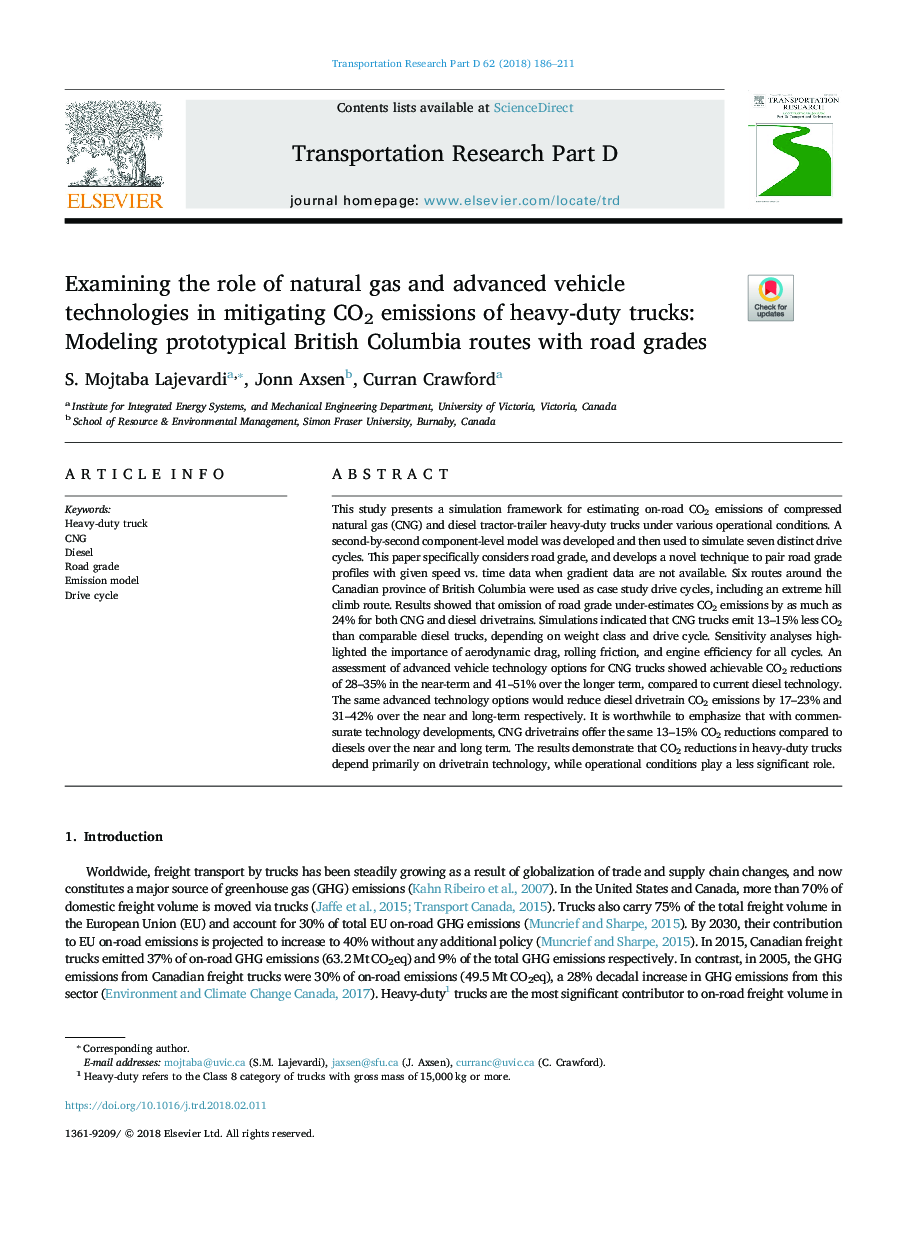| کد مقاله | کد نشریه | سال انتشار | مقاله انگلیسی | نسخه تمام متن |
|---|---|---|---|---|
| 7498718 | 1485861 | 2018 | 26 صفحه PDF | دانلود رایگان |
عنوان انگلیسی مقاله ISI
Examining the role of natural gas and advanced vehicle technologies in mitigating CO2 emissions of heavy-duty trucks: Modeling prototypical British Columbia routes with road grades
دانلود مقاله + سفارش ترجمه
دانلود مقاله ISI انگلیسی
رایگان برای ایرانیان
کلمات کلیدی
موضوعات مرتبط
علوم زیستی و بیوفناوری
علوم محیط زیست
علوم زیست محیطی (عمومی)
پیش نمایش صفحه اول مقاله

چکیده انگلیسی
This study presents a simulation framework for estimating on-road CO2 emissions of compressed natural gas (CNG) and diesel tractor-trailer heavy-duty trucks under various operational conditions. A second-by-second component-level model was developed and then used to simulate seven distinct drive cycles. This paper specifically considers road grade, and develops a novel technique to pair road grade profiles with given speed vs. time data when gradient data are not available. Six routes around the Canadian province of British Columbia were used as case study drive cycles, including an extreme hill climb route. Results showed that omission of road grade under-estimates CO2 emissions by as much as 24% for both CNG and diesel drivetrains. Simulations indicated that CNG trucks emit 13-15% less CO2 than comparable diesel trucks, depending on weight class and drive cycle. Sensitivity analyses highlighted the importance of aerodynamic drag, rolling friction, and engine efficiency for all cycles. An assessment of advanced vehicle technology options for CNG trucks showed achievable CO2 reductions of 28-35% in the near-term and 41-51% over the longer term, compared to current diesel technology. The same advanced technology options would reduce diesel drivetrain CO2 emissions by 17-23% and 31-42% over the near and long-term respectively. It is worthwhile to emphasize that with commensurate technology developments, CNG drivetrains offer the same 13-15% CO2 reductions compared to diesels over the near and long term. The results demonstrate that CO2 reductions in heavy-duty trucks depend primarily on drivetrain technology, while operational conditions play a less significant role.
ناشر
Database: Elsevier - ScienceDirect (ساینس دایرکت)
Journal: Transportation Research Part D: Transport and Environment - Volume 62, July 2018, Pages 186-211
Journal: Transportation Research Part D: Transport and Environment - Volume 62, July 2018, Pages 186-211
نویسندگان
S. Mojtaba Lajevardi, Jonn Axsen, Curran Crawford,